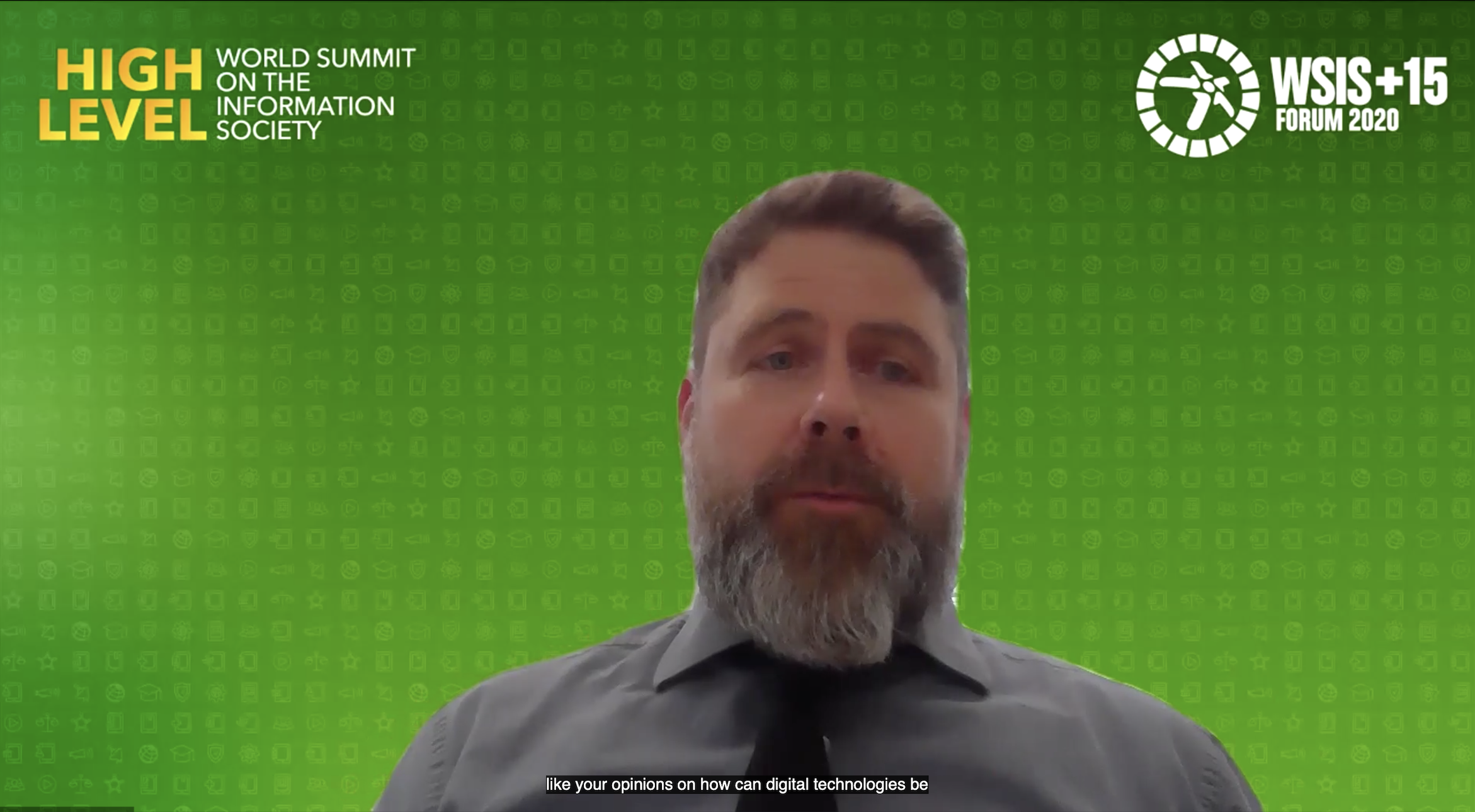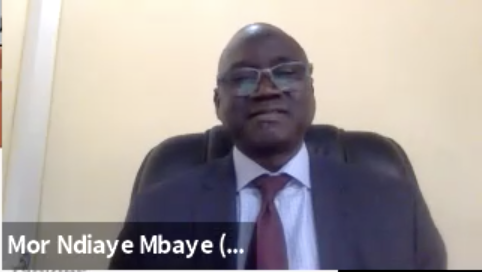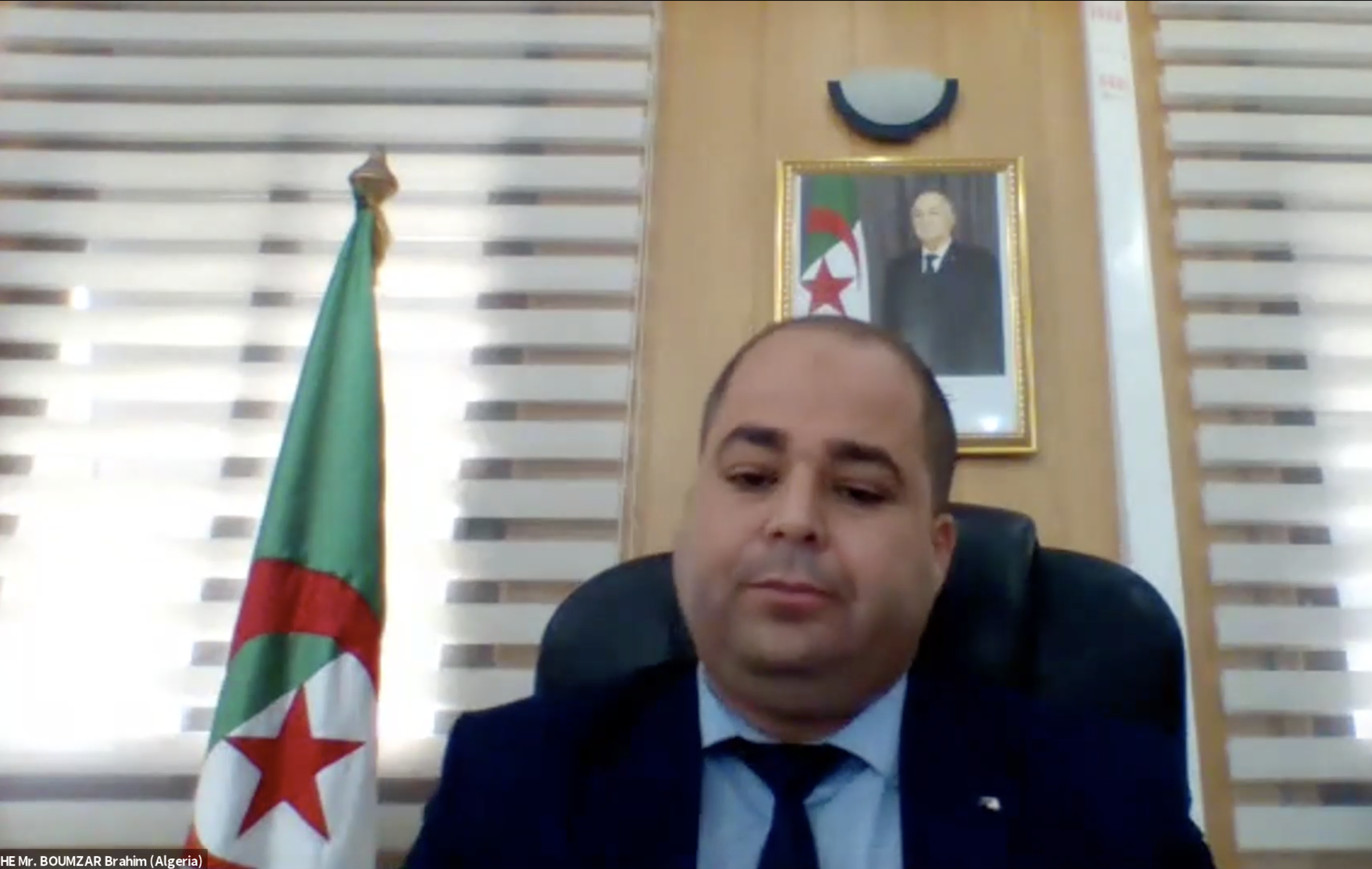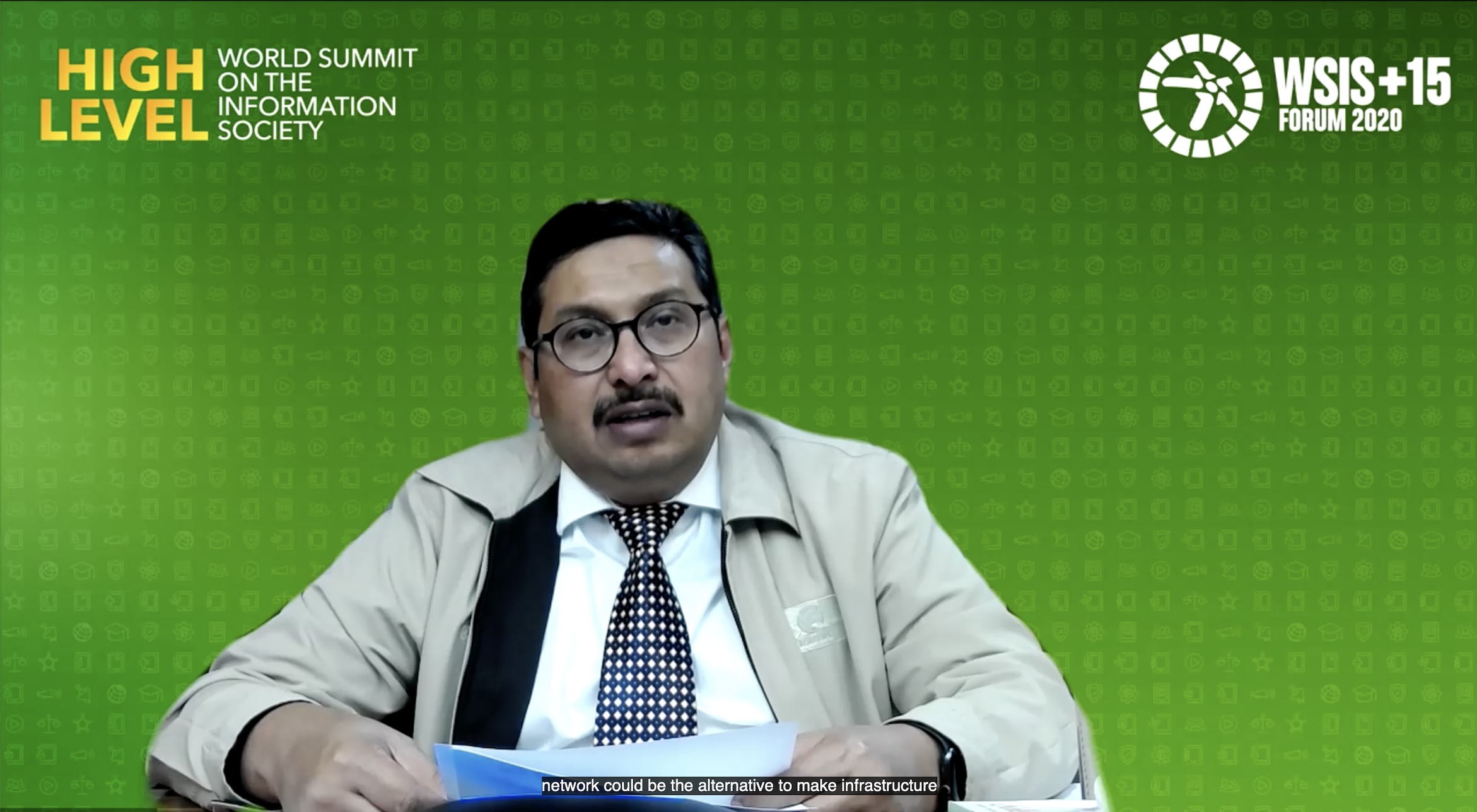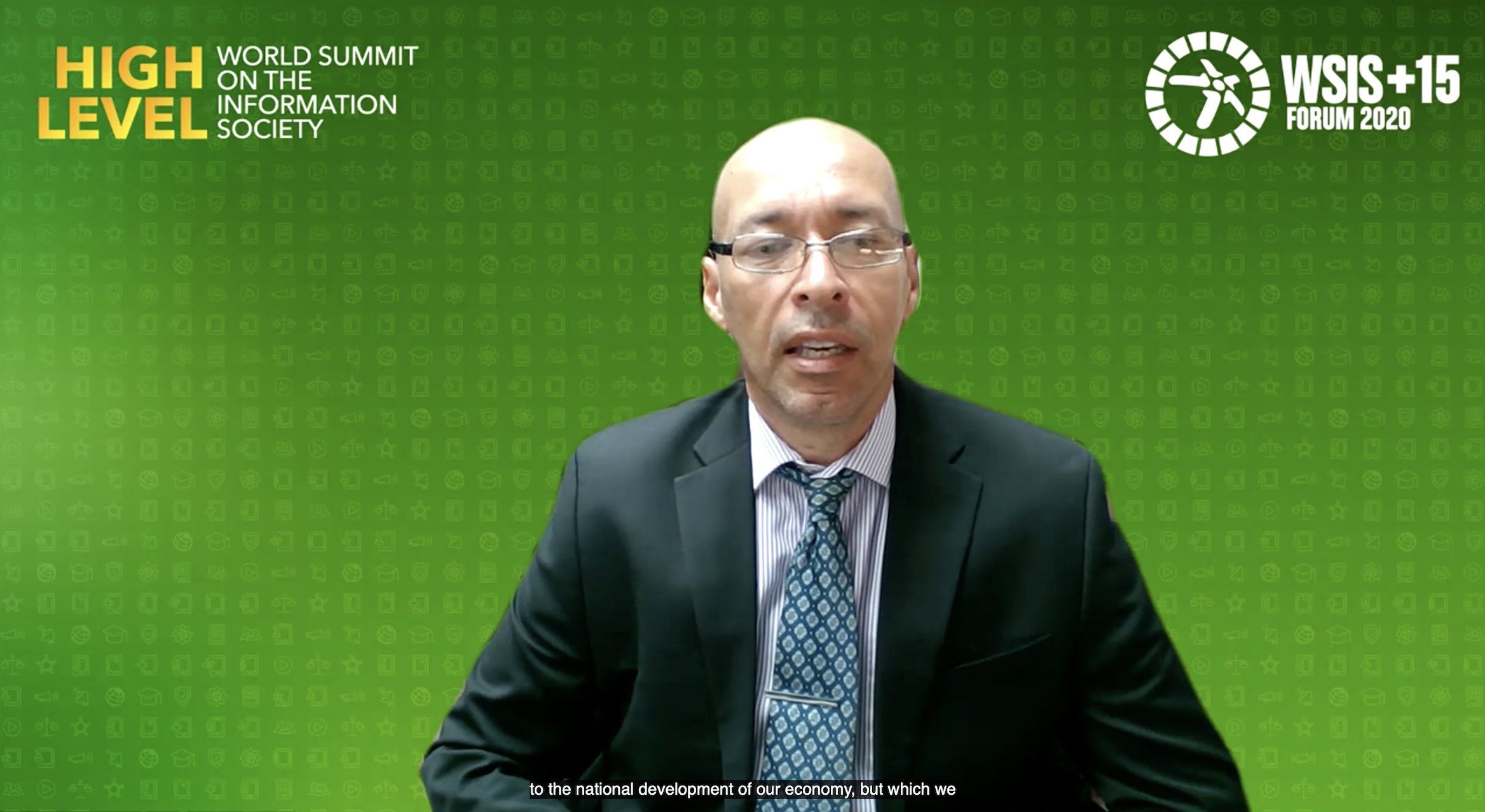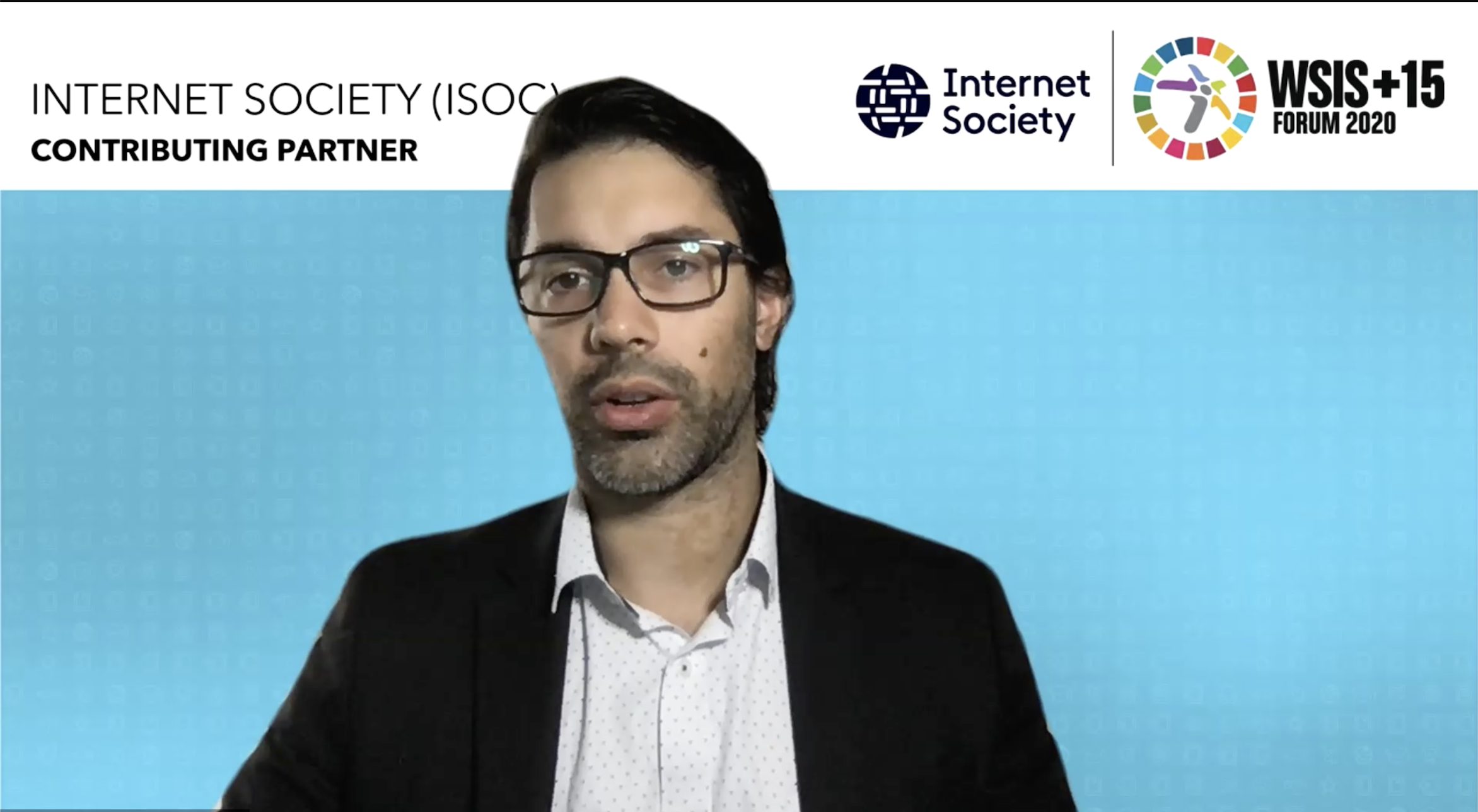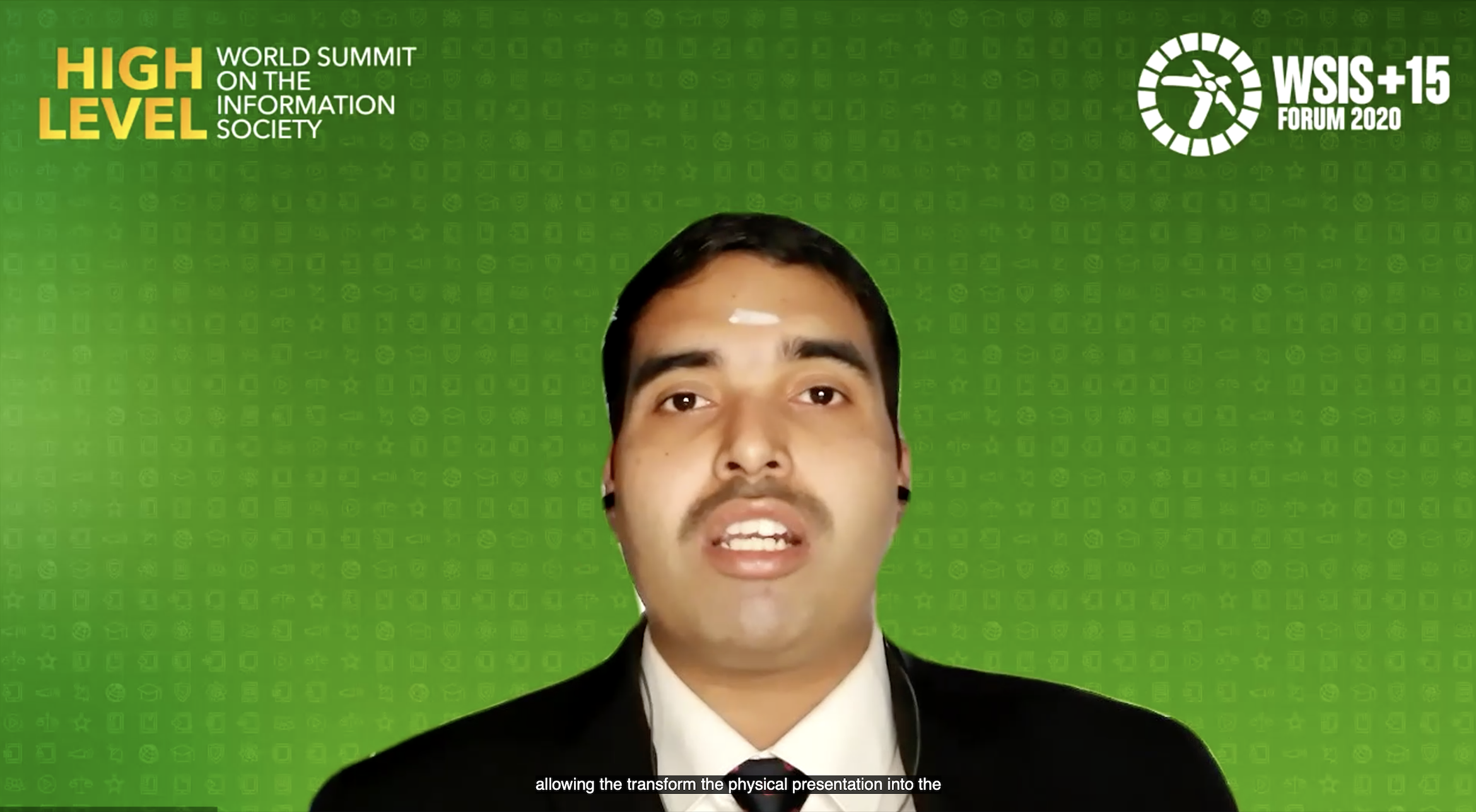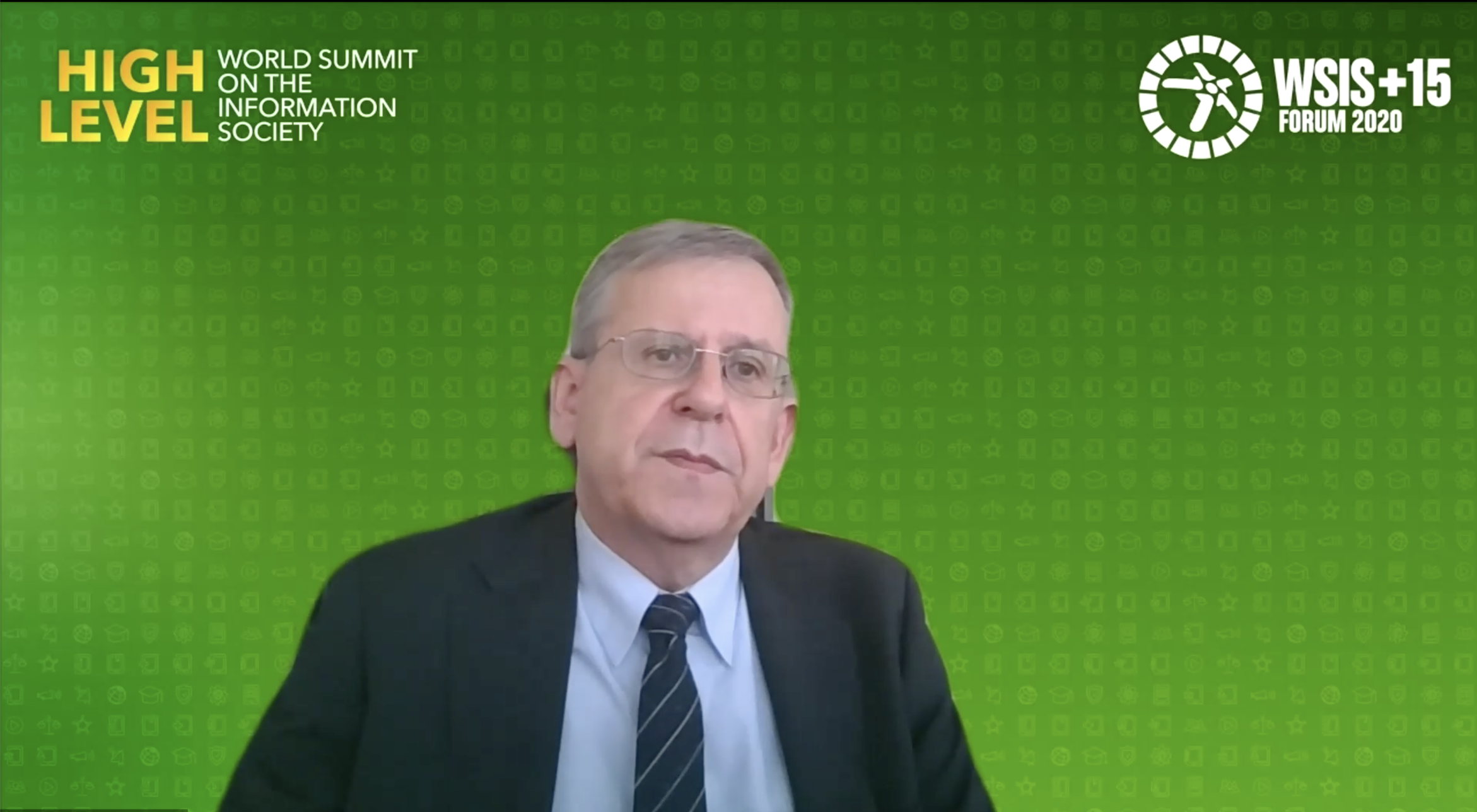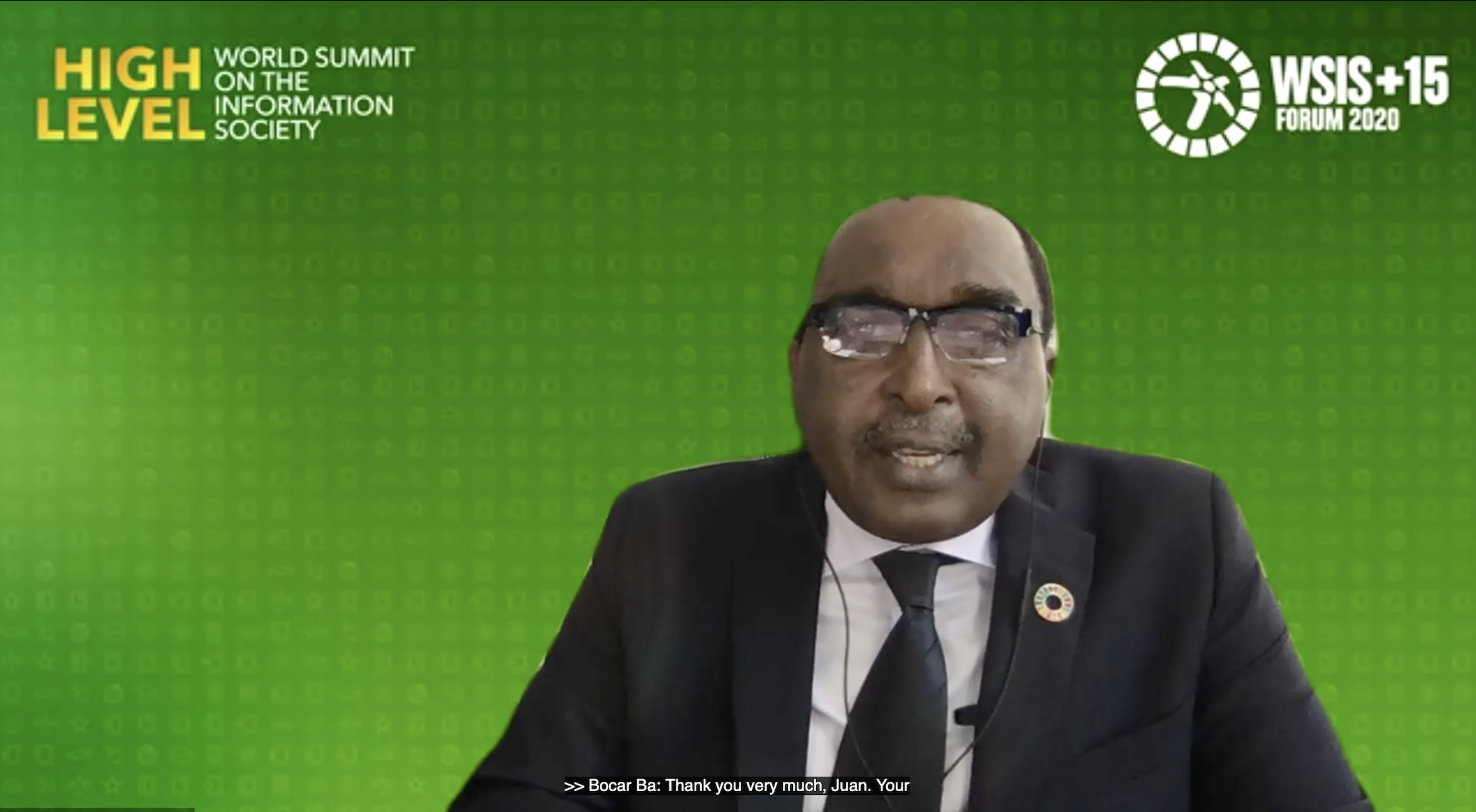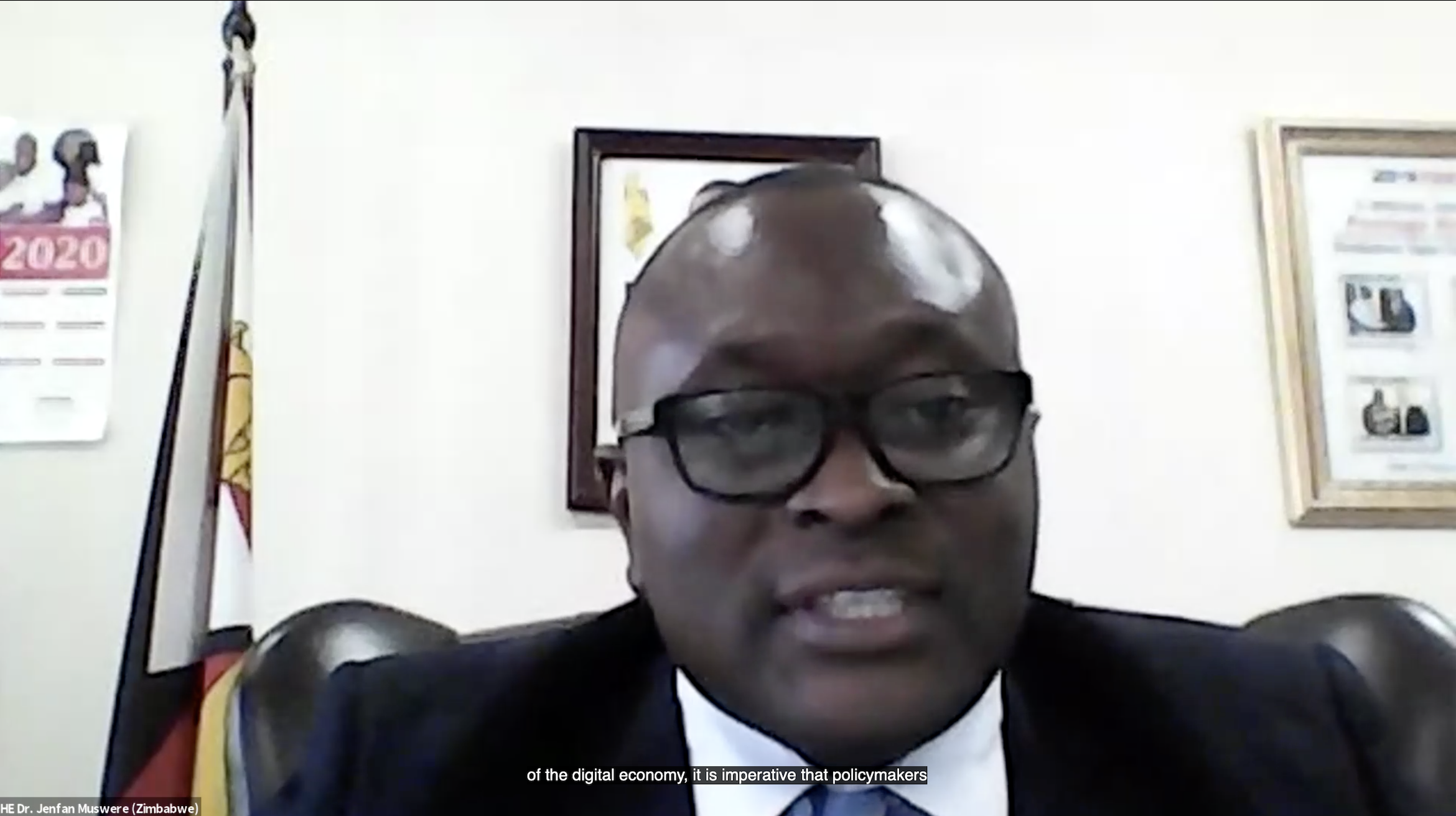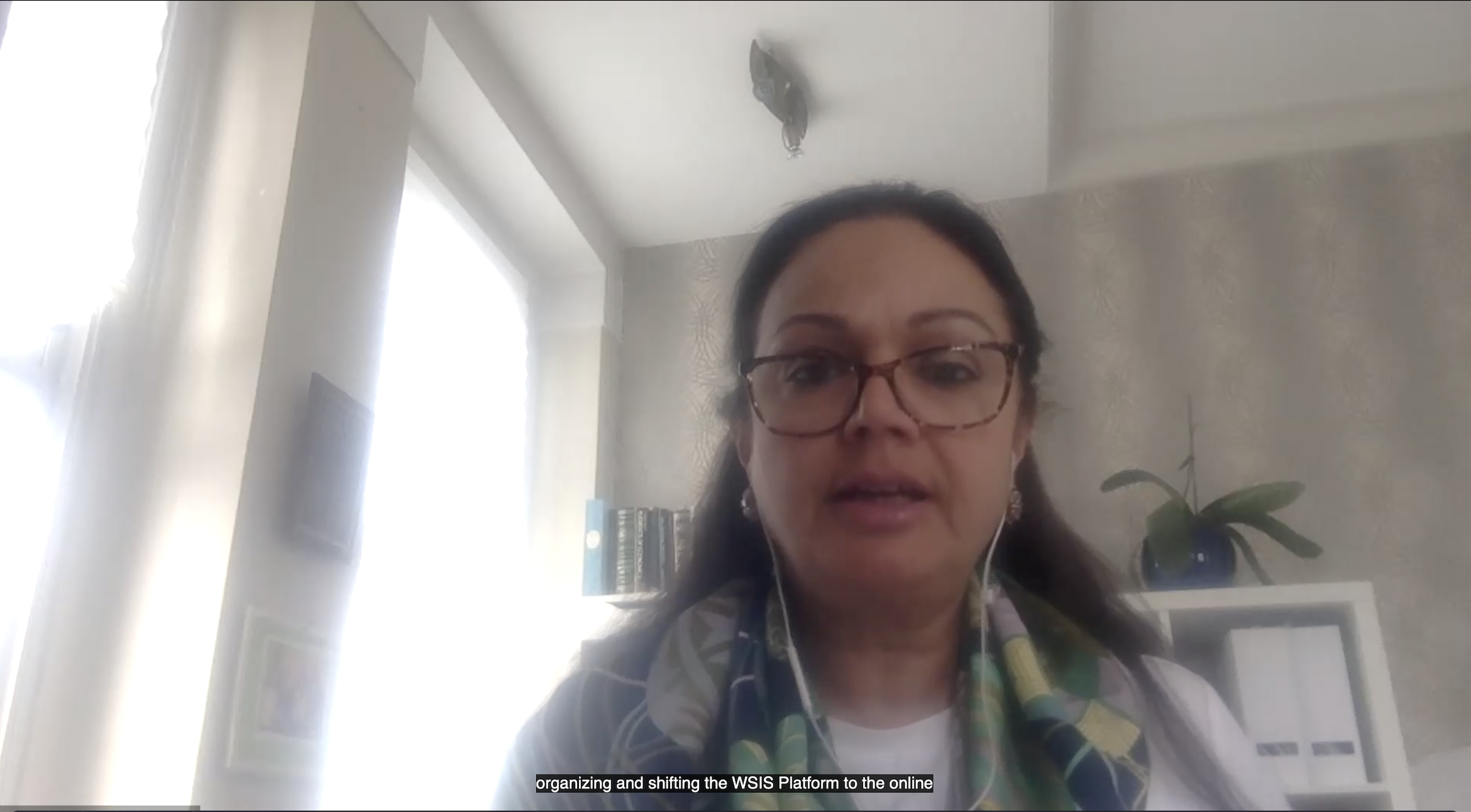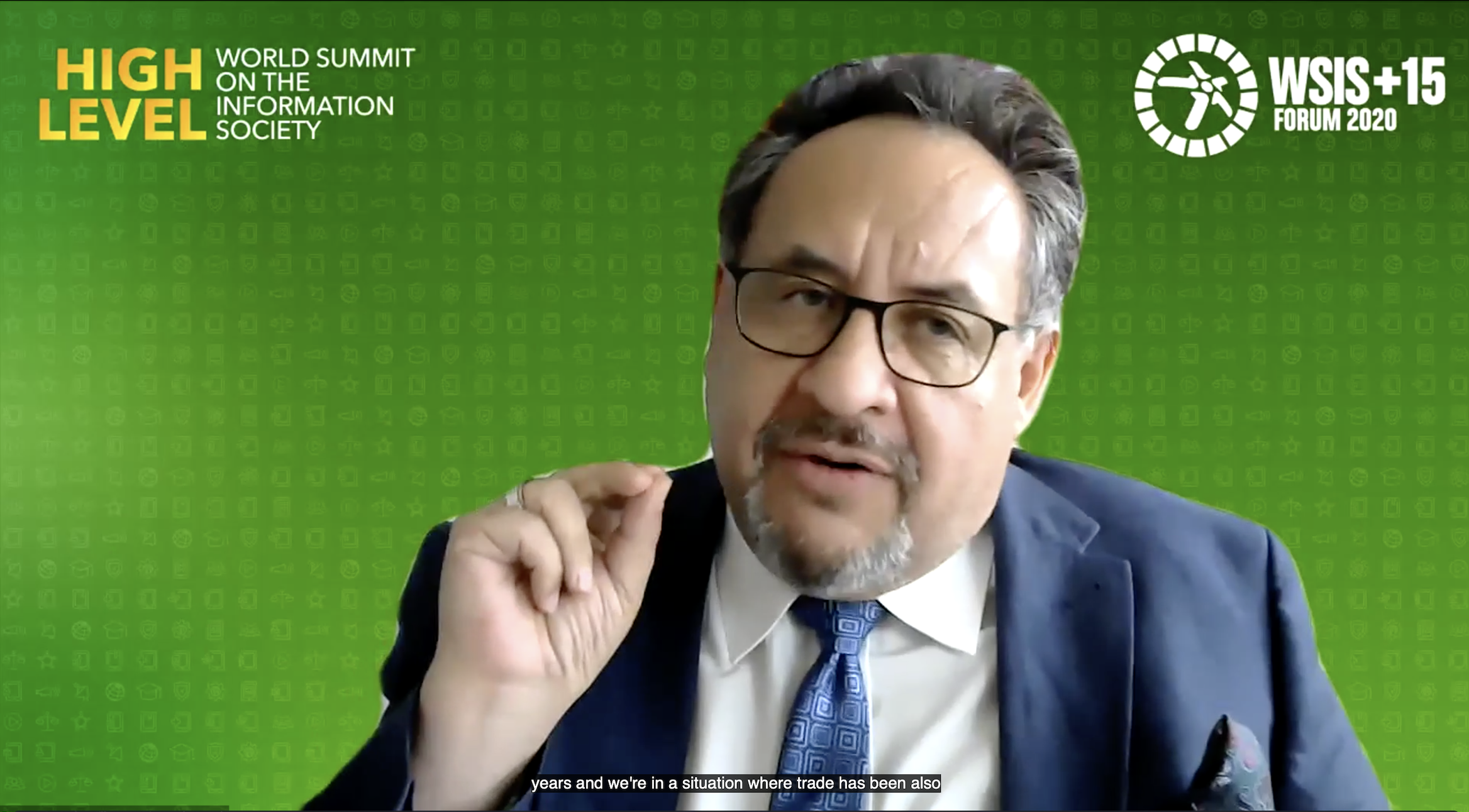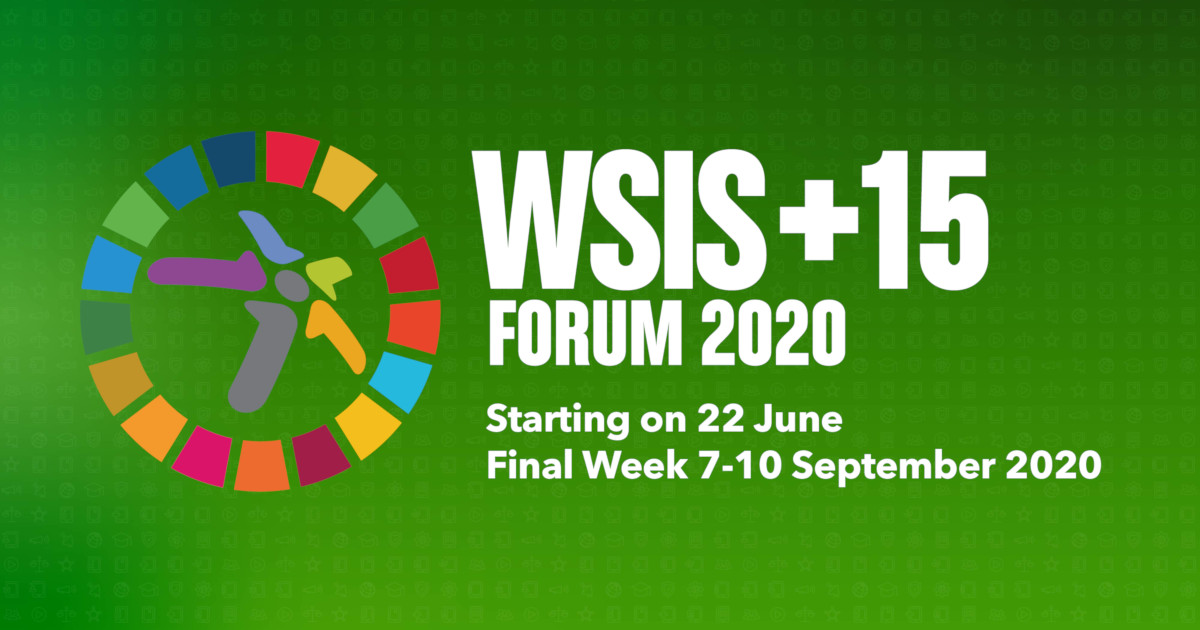High-Level Policy Session 7 : Digital Economy and Trade/ Financing for Development and role of ICT
WSIS
Session 172
Technology is supporting and changing how we organize our governing systems, our economies, and our cultures in unprecedented ways. There are several opportunities for partnerships and collaborations between countries and private sector stakeholders. Otheropportunities exist for research and development, country to country mentoring-which will ensure that experiences are shared, and no country is left behind. Other opportunities include challenging the status quo and finding new ways to find solutions to old problems. This can lead to new business models and a growing ecosystem of new ventures. Opportunities also exist for creative models to build awareness and educate the general public. [1]
[1] WSIS Forum 2019 outcome report
"We resolve to assist developing countries, LDCs and countries with economies in transition through the mobilization from all sources of financing, the provision of financial and technical assistance and by creating an environment conducive to technology transfer, consistent with the purposes of this Declaration and the Plan of Action". Geneva Declaration of Principles, WSIS 2003.

Juan Peirano is a Senior Policy Advisor at the Internet Society, where he is focused on issues related to Internet infrastructure and access. In his role as subject matter expert, Juan contributes to the development of Internet Society’s projects on Internet Growth, access and sustainability.
Prior to joining the Internet Society, Juan was involved in the Internet community, working for LACNIC as a Policy Officer and Internet Resource Analyst, before moving to engineering roles in Telefonica. He was an active participant in various technical fora, including participation in RIR activities, ICANN and IGFs, holding the position of co-chair for the Public Development Process in the LACNIC region, between 2016 and 2018.
Juan is a Telecommunications Engineer from ORT University in Montevideo, Uruguay, and has a Master’s degree in Public Policy from the University of Bristol in the United Kingdom.
He speaks English, Spanish and German.
Juan is currently based in the United Kingdom.

Angel González Sanz is the Chief of the Science, Technology and ICT Branch of the Division on Technology and Logistics of UNCTAD, the United Nations Conference on Trade and Development. Since he joined the United Nations secretariat in 1994 he has worked in the area of technology and innovation both supporting intergovernmental processes and in the delivery of advisory and technical assistance programmes, including UNCTAD's programme of Science, Technology and Innovation Policy Reviews.
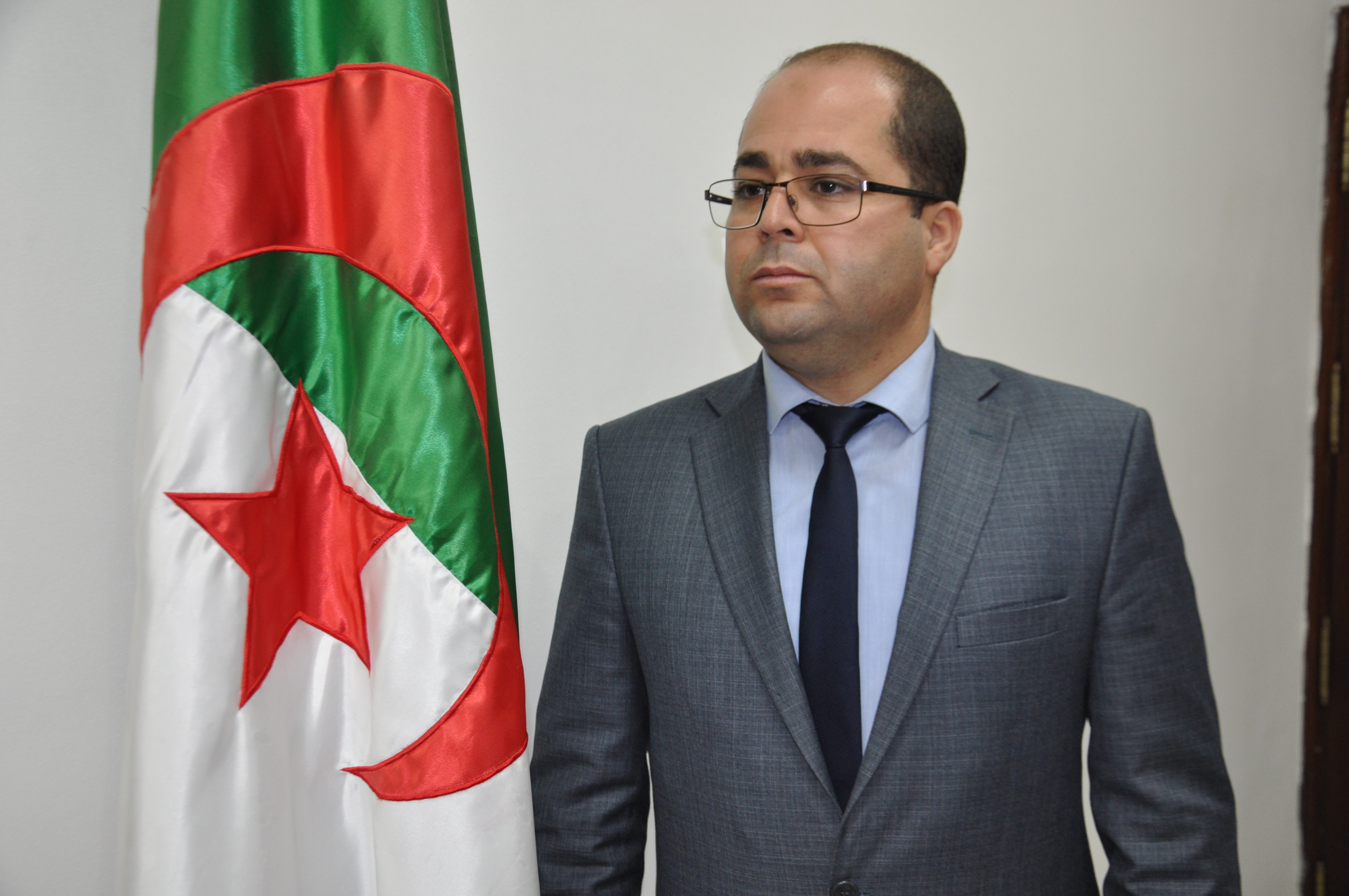
Mr Boumzar professional path and experience : Chief Executive Officer CEO of EPE SPA EADN (Digital Development Support Company), Director within Prime Minister’s Office. He was previously appointed as Senior Official within the Ministry of Post, Information and Communication Technology, Senior Official at the National Institute of Industrial Productivity and Development (INPED), Expert trainer in business management. Member of boards of directors, commissions and sectoral and intersectoral committees.
Mr Boumzar has also an experience in the Private sector as he was a technical sales Manager, worked in the development of studies and supervision of research papers mainly in terms of business management anf Finally, he was a Reserve Sub-Lieutenant, Joint Military Academy AMIA Cherchell (as part of military service).
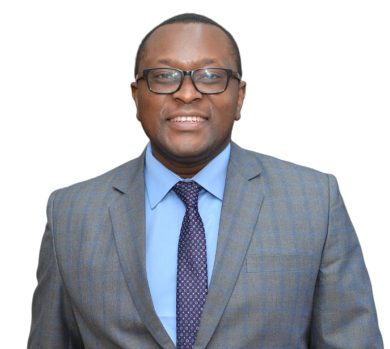
Honourable Dr Jenfan Muswere the Minister of Information Communication Technology, Postal and Courier Services in the Government of Zimbabwe. He holds a doctorate in Strategic Management and Business Leadership and a Master’s Degree in Business Administration, majoring in international trade. He is a Qualified and certified Associate of the Institute of Personnel Management of Zimbabwe (IPMZ).
He was elected to Parliament in July In September 2018, and subsequently appointed Deputy Minister of ICT, Postal and Courier Services, before being appointed Minister. Before being appointed Minister, he had gained experience working in the mining, construction and manufacturing sectors and more importantly, in the realm of ICT. He also previously served as a business and investment consultant and general manager for a number of large mining companies in Zimbabwe, including Hwange Colliery Company.
He holds a doctorate in Strategic Management and Business Leadership and a Master’s Degree in Business Administration, with a major in international trade. He is a Qualified and certified Associate of the Institute of Personnel Management of Zimbabwe (IPMZ).
His vision is to see Zimbabwe transform into a SMART nation, through development of digital infrastructure, digital skills, ICT innovation and Industry growth.
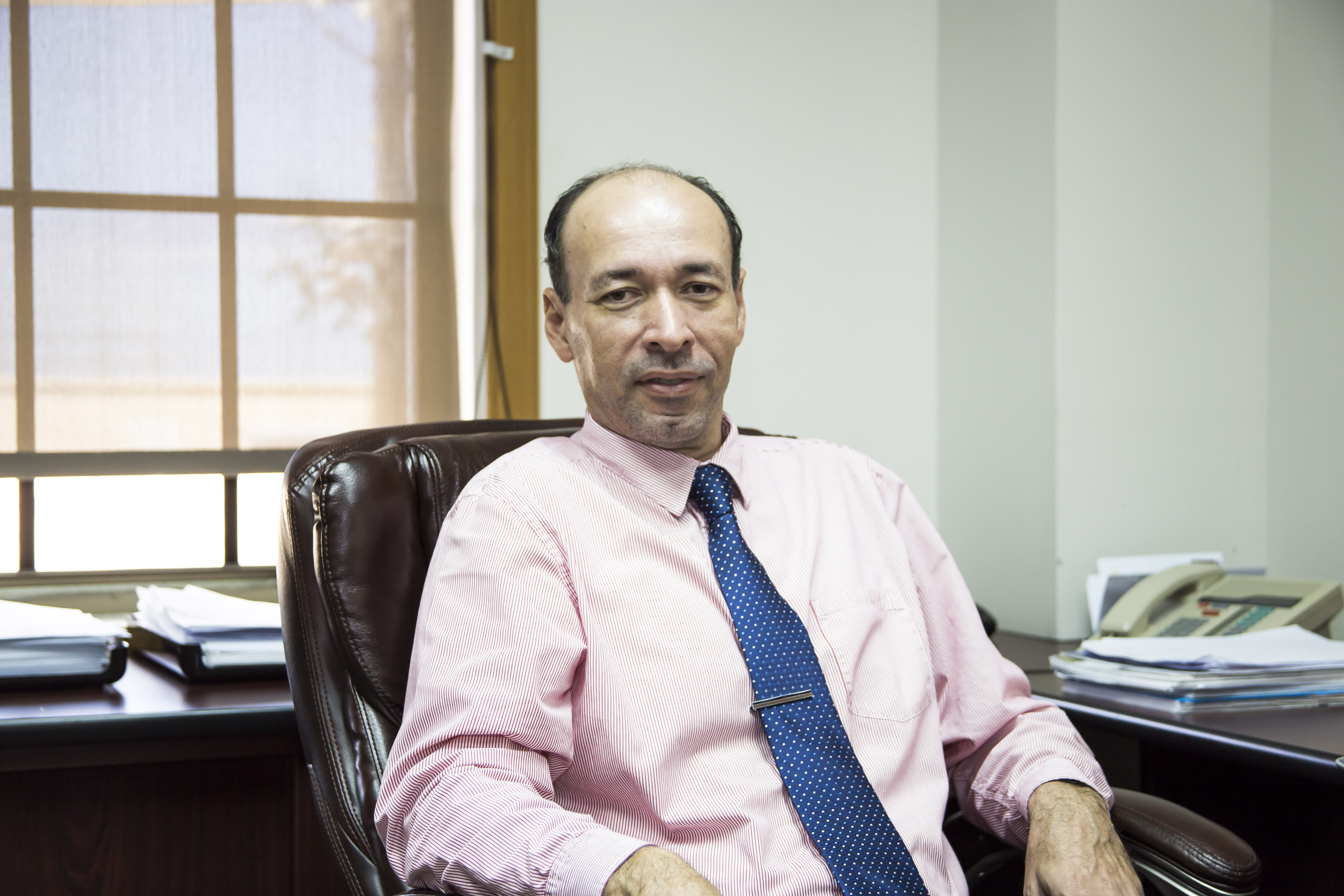
Mr. Knights has spent the last two decades working in the public sector in St. Vincent and the Grenadines and specifically in the area of telecommunications development, regulation and policy. Prior to joining the National Telecommunications Regulatory Commission (NTRC) as its Director in 2002 he was the Telecommunications Officer in the Ministry of Communications and Works and was deeply involved in the telecommunications liberalization process within the Organization of Eastern Caribbean States (OECS).
His expertise covers a wide area including management, emergency communications, numbering, universal service and access, policy development, digital transformation and the Internet. Mr. Knights believes in practical solutions to problems and tries to have his work benefit the citizens he serves here at home and the wider Caribbean region.
He holds a Bachelor’s Degree in Electrical Engineering from the City University of New York, a Master’s Degree in Telecommunications and Networking from the Polytechnic Institute of New York University and an MBA in International Business from St. George’s University.
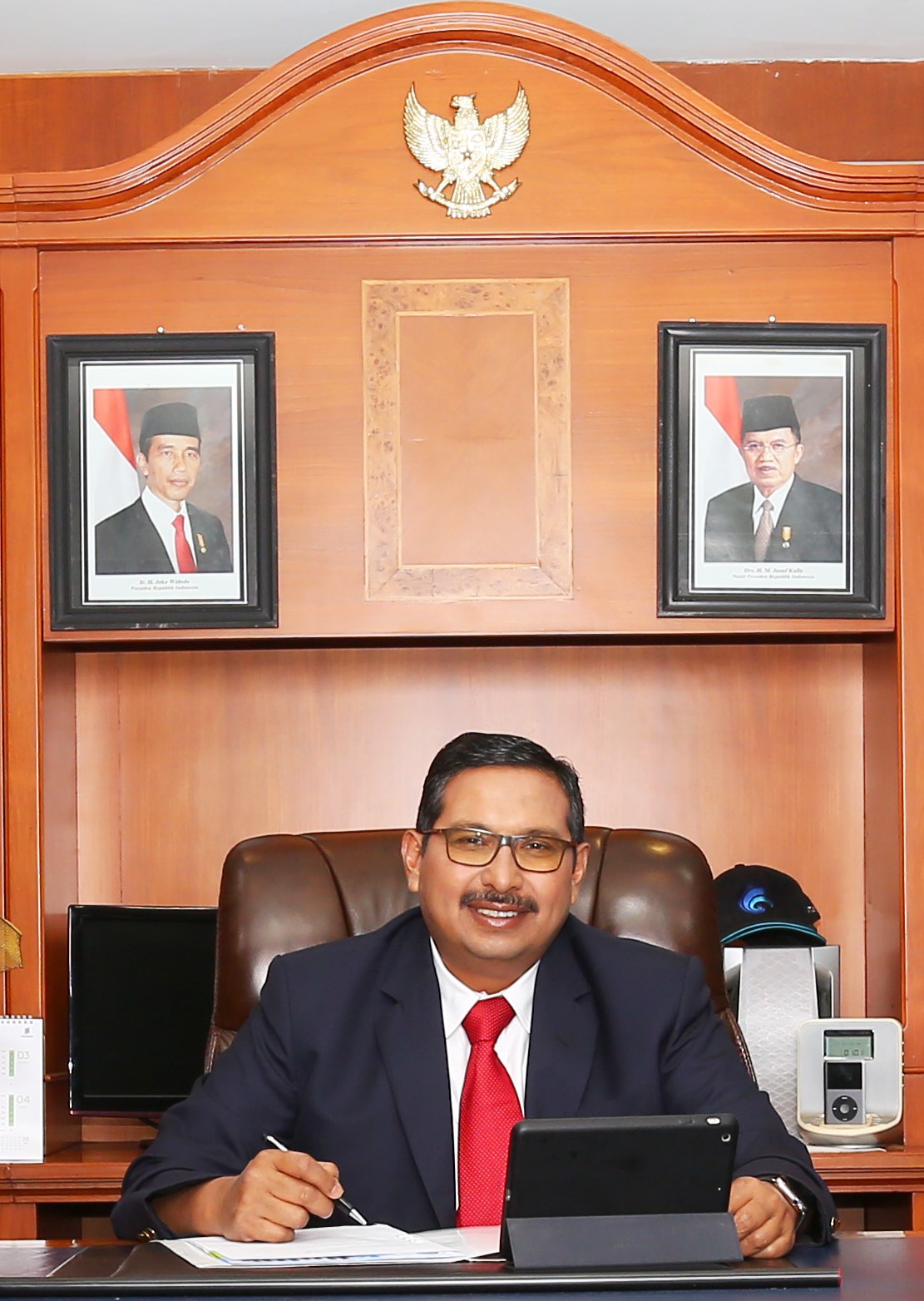
As Director General of Spectrum Management and Standardization of Post and ICT, Ministry of ICT of Indonesia, Dr. Ismail leads the directorate general with approximately 1500 civil servants throughout Indonesia to fulfill an effective, efficient, dynamic and optimal frequency spectrum management, as well as encouraging the use of innovative technology that meets technical requirements. Currently, He is focusing on how government could be a boosterfor ecosystem,particularlybeinga facilitator. Dr. Ismail has been with The Government of Republic of Indonesia for 25 years. Prior to his current role, he was one of the initiator of Palapa Ring, a pivotal project to connect all provinces and capital districts with high capacity nationalbackbone.


Rob Skidmore is Chief of Sector and Enterprise Competitiveness Section (SEC) at the International Trade Centre (ITC) where he leads the Value added to Trade Programme. Under VA2T, ITC teams help SMEs to build value through improving customer relationships, creating supportive eco-systems and building firm capabilities. ITC’s portfolio covers projects in cocoa, coffee, horticulture, coconuts, cotton and specialty crops and ranges from the Caribbean to East Africa to Pakistan and Nepal. Rob oversees the implementation of ITC’s Fast Track Tech and ecomConnect programmes which support digital entrepreneurialism and the accelerated adoption of e-commerce in developing and least developed countries. He holds an MA from Johns Hopkins SAIS and a BA from the University of Wisconsin.
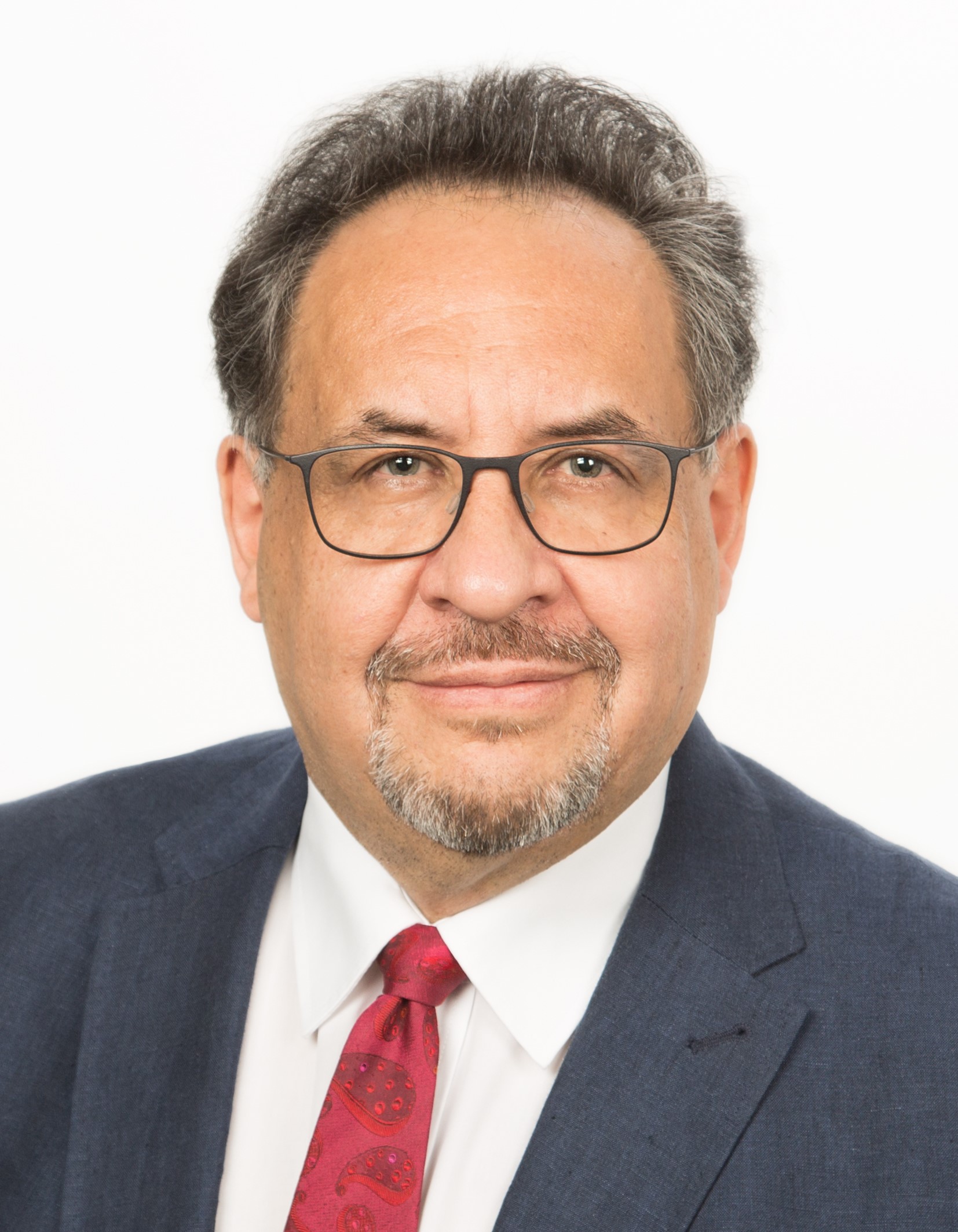
Dr. Bernardo Calzadilla-Sarmiento Managing Director of the Directorate of Digitalization, Technology and Agri-Business, and Director of the Department of Digitalization, Technology and Innovation, at the United Nations Industrial Development Organization, UNIDO.
Dr. Calzadilla has been Director for the Technical Assistance and Training at the International Organization for Standardization (ISO). As Director of the Department of Trade, Investment and Innovation, Dr. Calzadilla has been leading the work on quality and standards for trade facilitation, investment for sustainable development and innovation in the context of the fourth industrial revolution (4IR).
Dr. Calzadilla has held position in investment promotion, funds mobilization and social responsibility. With more than 25 years of international experience in global development, his involvement includes working in Africa, Asia and Latin America. Dr. Calzadilla holds a Master’s and Ph.D. degrees in Economics from the Vienna University of Economics and Business (Austria).
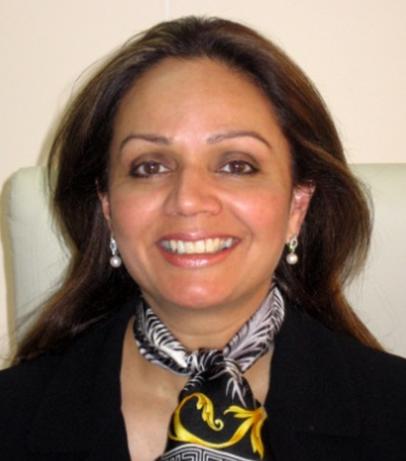
Dr. Salma Abbasi is the Chairperson and CEO, eWorldwide Group, an international social enterprise focusing on innovation, sustainable development, and holistic inclusion for women across multiple dimensions, both at the strategic and tactical levels, founded in 2000. The Group has been collaborating with UN agencies, Governments and development agencies, supporting the SDGs. Dr Abbasi is also the Founder and Director of SAM Foundation which focuses on
capacity building and skills development to holistically empower women and youth to address
poverty.
Dr Salma was formally, the Senior Vice President, Chief Quality Officer for Lucent Technologies, and has over 35 years’ experience in the field of technology, innovation and customer centric design. As a triple engineer; graduate of Civil, Electrical and a PhD from London University, examining the level of consideration for women across ICT Policies, opportunities, impact, and barriers.
Dr Abbasi is working to create a strong and safe digital knowledge economy, leveraging best practices, creating unique localised, multi-sector, multi-stakeholder engagement models. She has successfully created strategies and initiatives that integrate policies and promote technology for social good to focus on ‘win-win’ scenarios, thus laying the foundations for sustainable digital economies, particularly for rural communities. She advocates that the only way to develop a
truly resilient digital economy is to engage and equip local SMEs and MSMEs with holistic capabilities to promote entrepreneurship, digital proficiency, financial literacy and innovation to drive financial inclusion to build inclusive societies. This has directly benefited local economies resulting in sustainable socio-economic development, harmonized within the local context, disrupting local power structures to ensure greater equity for women at the grassroots.
Recently, she has developed a robust agriculture, industrialization and trade transformation initiative, powered by innovation and ICTs which is creating resilience at the grassroots level across the rural farming communities, impacting the poorest of the poor, while nurturing a new generation of agric. entrepreneurs, techno-preneurs and industries across the entire ecosystem and value-chain. She has also joined several IEEE committees to shape new policies, develop
industry standards and guidelines in the broader context of on-line safety, gaming and ethical AI
design for humanity and social good.
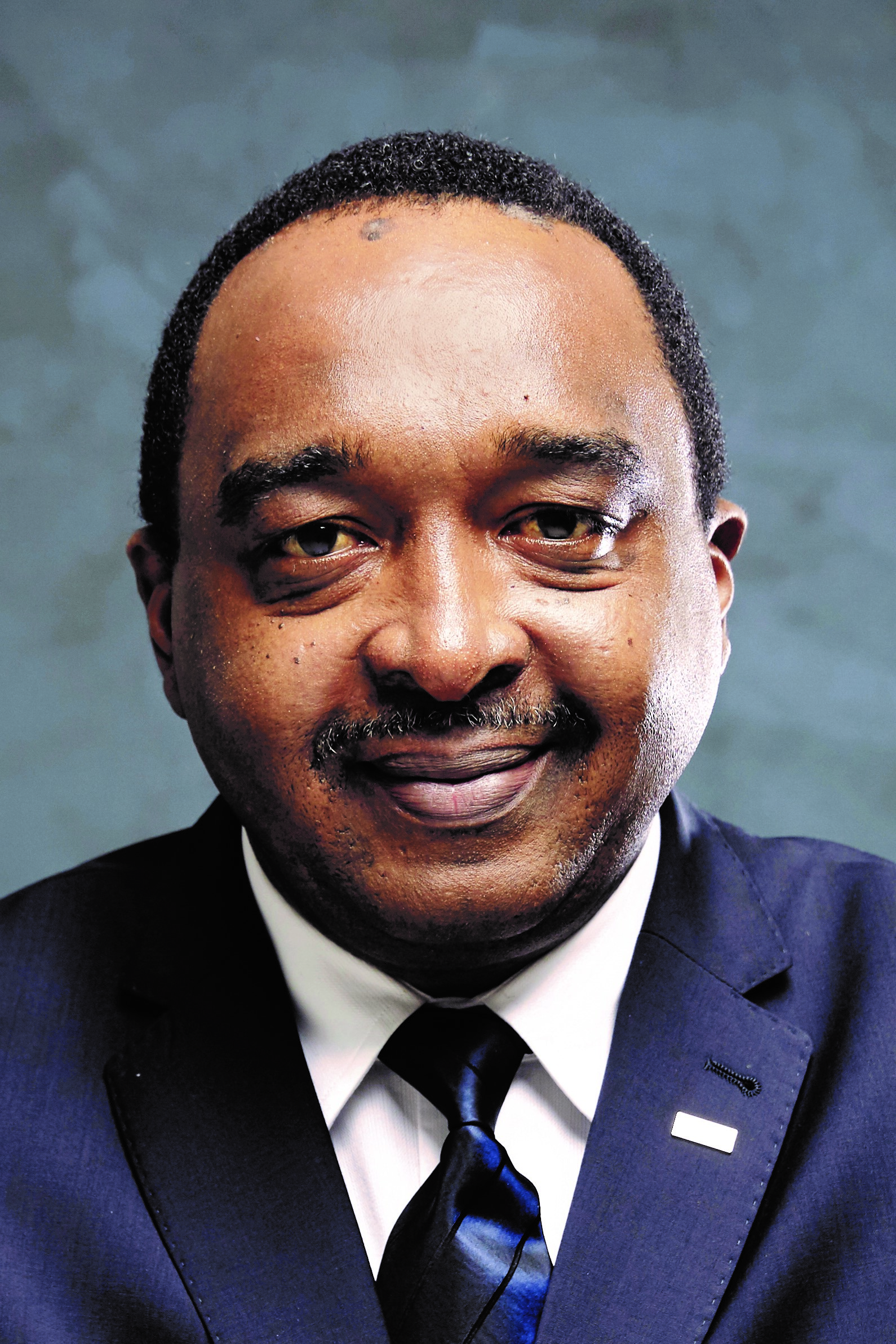
Bocar BA is an advocacy specialist, focused on the promotion of sustainable digital development, ICT infrastructure expansion and investment through collaboration and multi-stakeholder partnerships in the Middle East and Africa regions. BA is the CEO and a board member of SAMENA Telecommunications Council, which serves as a sector-development partner to governments and the telecommunications industry toward jointly creating a sustainable ICT environment as the enabler of a sustainable digital economy.
In his capacity as CEO of SAMENA Council, BA brings together and facilitates the building of alliances between digital ecosystem stakeholders, including regulators and other government bodies, to address critical technocentric, policy, and regulatory issues. His efforts have directly helped drive key regional initiatives, workshops and events in areas including affordable infrastructure, advanced digital services, data and privacy regulation, spectrum management, and industry fees and taxation. BA is a strong advocate of advancing socio-economic progress and contributing to the achievement of the UN's Sustainable Development Goals (SDGs) through ecosystem-wide collaboration on proliferating ICTs, and setting incentives for investment in digitization and advanced communications infrastructure.
BA is a Commissioner of the UN Broadband Commission for Sustainable Development and he serves as the chair of the ITU's Private Sector Chief Regulatory Officers Meeting (“CRO”). Mr. BA is director and member of the board of several companies, active in the areas of investment, technology, management, and consultancy services. He is actively involved in the privatization processes in the MEA region and drives various investment projects, with the aim to linking new development opportunities in Asia, the Middle East, and Africa.
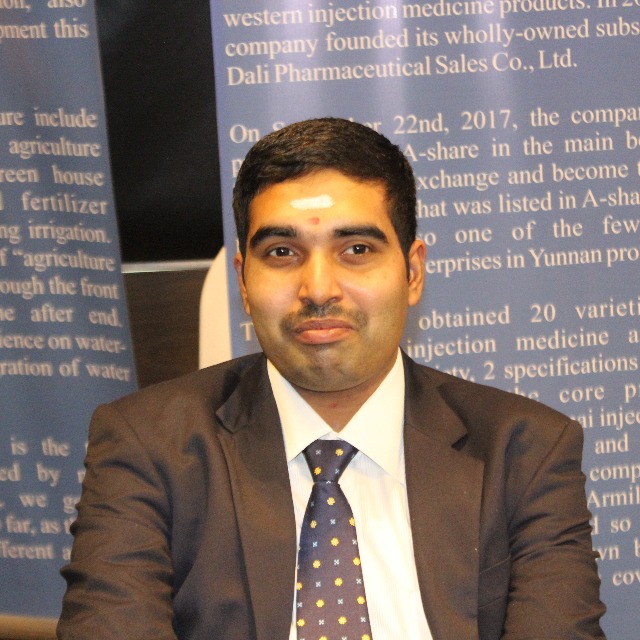
Kokula Krishna Hari Kunasekaran, Indian, born in Puducherry (formerly Pondicherry) in the 1980s is a pure veteran with strong acquired knowledge in Public Administration, Business Administration, Computer Network (Security) Research and Entrepreneurship. He is shortly addressed as "KK" by all his associates. KK has a wide range of contacts through various pipelines and channels across the globe in Academic Network or Industrial Network or Research Network. Carried away with a more significant commitment to the consoled projects, he has helped many people to achieve greater laurels.
With loads of experience with major IT firms, he has been acquainted with the work culture and implemented the independent opposite factor into them during his initial entrepreneurial journey time. He was one of the youngest International Conference Organizers during his mid-20s of the scientific world. KK has received the Australian Youngest Entrepreneur Award. He is serving as Visiting Faculty in many Universities across the world and educates. KK is a constant researcher in the field of Computer Network Security. His comments on the International Relations and Public Policy are globally acknowledged.
KK started with Computer Science Engineering as a career in India. Later he realised the value and pursued Master of Science (Engineering) Sandwich programme in the United Kingdom. His strong desire in Research and Development induced him to pursue Doctor of Philosophy (PhD) in Computer Science with specialisation as Network Security. He completed his Doctoral program in the United Kingdom with flying colours including patent ownership. To make the completion, he pursued PDF (Post Doctoral Fellowship) from the United Kingdom. Aside from exhibiting his technocracy, he has pursued his Bachelor of Science (Computer Science) and Master of Science (Computer Science) from a reputed Indian University. KK has pursued his Executive Education in Leadership Skills and Non-Profit Management from the United States of America.
He is now a member and also a consultant to various professional bodies. KK is associated with many universities in the advisory board. With constant development, he was in the designation of Global President managing the entire organisation and was key instrumental in the expansion of the business into 8 Locations. Having a more magnificent view on the developmental phase of the Organization he has driven a great enduring point. With the learned expertise, he has even served as the Director - Human Resources (Recruitment) for the recruitment of the right candidates.
Additionally, he serves as the consultant for various International Organizations and Government Agencies in the essential spectacle for Cloud Computing and eGovernance. His entrepreneurial skill drove him to higher heights without limits.
-
 C1. The role of governments and all stakeholders in the promotion of ICTs for development
C1. The role of governments and all stakeholders in the promotion of ICTs for development
-
 C7. ICT applications: benefits in all aspects of life — E-government
C7. ICT applications: benefits in all aspects of life — E-government
-
 C7. ICT applications: benefits in all aspects of life — E-business
C7. ICT applications: benefits in all aspects of life — E-business
-
 C7. ICT applications: benefits in all aspects of life — E-agriculture
C7. ICT applications: benefits in all aspects of life — E-agriculture
-
 C7. ICT applications: benefits in all aspects of life — E-science
C7. ICT applications: benefits in all aspects of life — E-science
-
 C8. Cultural diversity and identity, linguistic diversity and local content
C8. Cultural diversity and identity, linguistic diversity and local content
-
 C10. Ethical dimensions of the Information Society
C10. Ethical dimensions of the Information Society
-
 C11. International and regional cooperation
C11. International and regional cooperation
-
 Goal 1: End poverty in all its forms everywhere
Goal 1: End poverty in all its forms everywhere
-
 Goal 2: End hunger, achieve food security and improved nutrition and promote sustainable agriculture
Goal 2: End hunger, achieve food security and improved nutrition and promote sustainable agriculture
-
 Goal 7: Ensure access to affordable, reliable, sustainable and modern energy for all
Goal 7: Ensure access to affordable, reliable, sustainable and modern energy for all
-
 Goal 8: Promote inclusive and sustainable economic growth, employment and decent work for all
Goal 8: Promote inclusive and sustainable economic growth, employment and decent work for all
-
 Goal 9: Build resilient infrastructure, promote sustainable industrialization and foster innovation
Goal 9: Build resilient infrastructure, promote sustainable industrialization and foster innovation
-
 Goal 10: Reduce inequality within and among countries
Goal 10: Reduce inequality within and among countries
-
 Goal 12: Ensure sustainable consumption and production patterns
Goal 12: Ensure sustainable consumption and production patterns
-
 Goal 13: Take urgent action to combat climate change and its impacts
Goal 13: Take urgent action to combat climate change and its impacts
-
 Goal 14: Conserve and sustainably use the oceans, seas and marine resources
Goal 14: Conserve and sustainably use the oceans, seas and marine resources
-
 Goal 16: Promote just, peaceful and inclusive societies
Goal 16: Promote just, peaceful and inclusive societies
-
 Goal 17: Revitalize the global partnership for sustainable development
Goal 17: Revitalize the global partnership for sustainable development
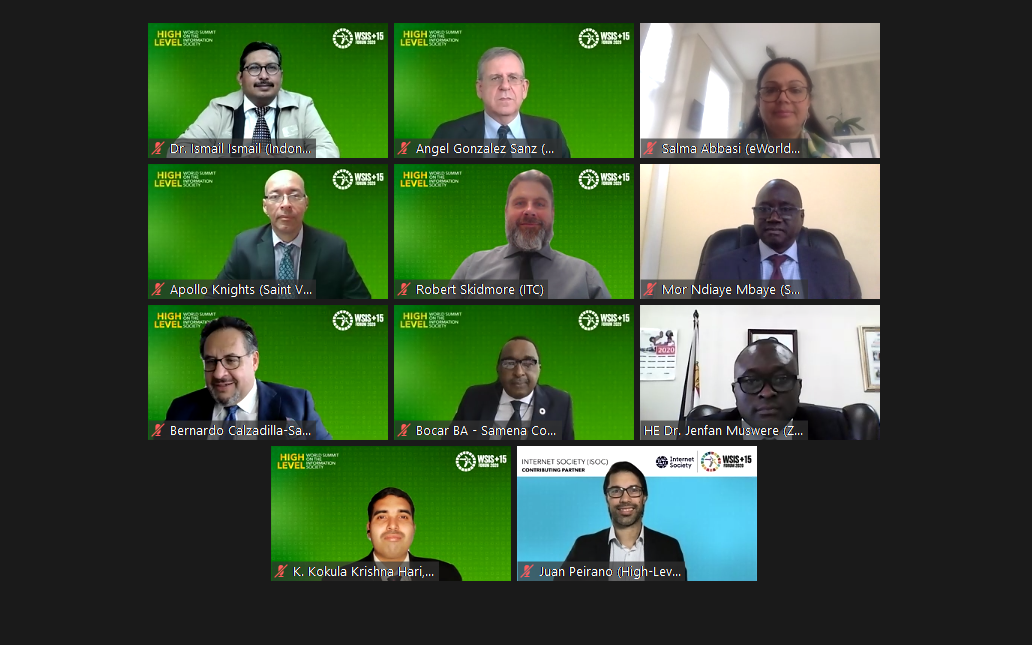
.png)
